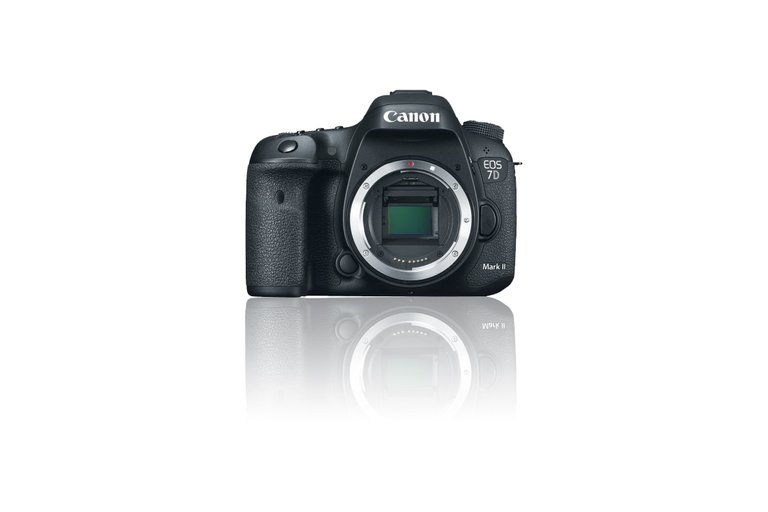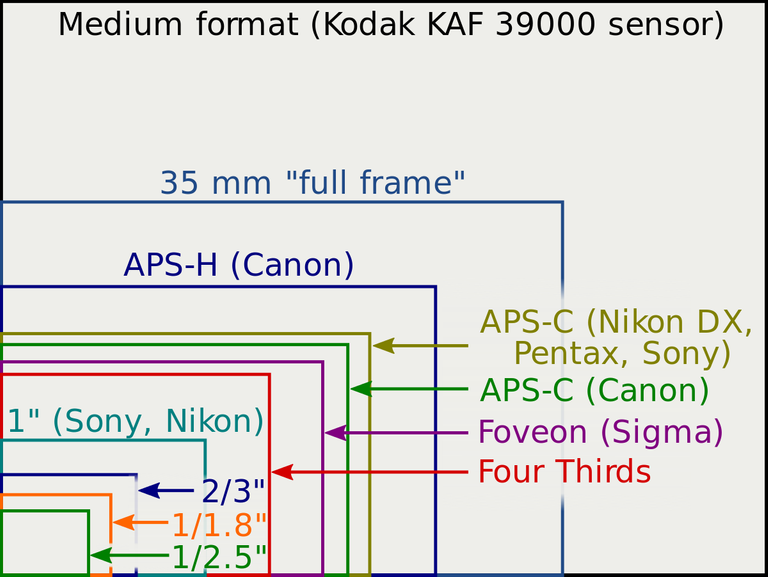‘This camera has 20 million pixels, it must be good!’ Uh, no not really. It is not that easy. The amount of pixels is one thing, but there are more factors influencing the quality of an image a camera produces. In this tutorial I will explain more about the camera sensor.

Why are there different sensors?
Before we started using digital cameras, cameras used a negative film to capture the image. The most commonly used film was the 35mm film. The rectangular negative of a 35mm film (24mm x 36mm) captures the full area of the circle of the image produced by a lens. Hence the name: full-frame camera.
When technology advanced, the negative film transitioned into a digital sensor. However, in the early days of digital cameras, it was technologically challenging as well as very expensive to produce full-frame digital sensors. That is why camera manufacturers started developing smaller sensors. Today, there is a wide variety of sensors on the market, from very large sensors to very small sensors. The illustrations below provides an example of some commonly used sensor sizes.

Image source: Wikipedia
What is the difference between a large and a small sensor?
Imagine two sensors, a full-frame sensor measuring 36mm x 24mm with 22.3 million pixels and a Canon APS-C sensor measuring 22.2mm x 14.8mm with 20.2 million pixels. The full-frame sensor is a factor 1.6 larger compared to the APS-C sensor, however there are not 1.6 times more pixels on the sensor. The pixels of the full-frame sensor are therefore larger and are more spaced compared to the pixels on the APS-C sensor. In fact, a single pixel of the full-frame sensor is 6.2µm (or 0.0062mm) while a single pixel of the APS-C sensor is 4.1µm (or 0.0041mm) in size, see the illustration below (note that this is an illustration for educational purposes, it is not an actual representation of a sensor and/or pixel).
![]()
You can read more information about the differences between full-frame and crop sensor cameras in this blog
Is a large sensor better?
We now know that the individual pixels of the Canon APS-C sensor are smaller compared to the full-frame sensor. Generally, using smaller pixels results in more noise and less dynamic range in images. This will particularly affect an image when shooting in low-light situations. Is it this simple? No, not really.
The more pixels, the better the resolution will be of an image. If you are, for example, going to photograph birds with a long focal length and crop/magnify your images post production, you might actually be better off using an APS-C sensor camera. However, if you are shooting in low-light situations (such as portrait or landscape photography), the full-frame sensor will give better results.
What about a phone camera?
The size of individual pixels can get very small. For example, a pixel of an iPhone S7 camera measures 1.4µm (or 0.0014mm). In terms of pixels per inch, this sensor has more pixels per square inch compared to the above full-frame and/or APS-C sensors. Does that mean it is producing better quality images? No. The overall size of the sensor is much smaller compared to the APS-C sensor. Individual pixels have less space and because the pixels are so small, there will be more noise and less dynamic range in the images. This is especially noticeable when shooting in low-light conditions or when you are going to crop/magnify the images post production.
In conclusion
You could say that there is a delegate balance between the amount of pixels, the actual pixel size and the quality of the image. However, in general, a larger sensor size results in superior image quality. I hope that this tutorial helped you in choosing your next camera.
Would you like me to write more photography tutorials? Let me know in the comments (you may even suggest topics).
Don’t forget to Upvote, ReSteem, Comment or to Follow Me if you liked this post!
Congratulations @aegir! You have completed the following achievement on the Steem blockchain and have been rewarded with new badge(s) :
Click here to view your Board of Honor
If you no longer want to receive notifications, reply to this comment with the word
STOPDo not miss the last post from @steemitboard: